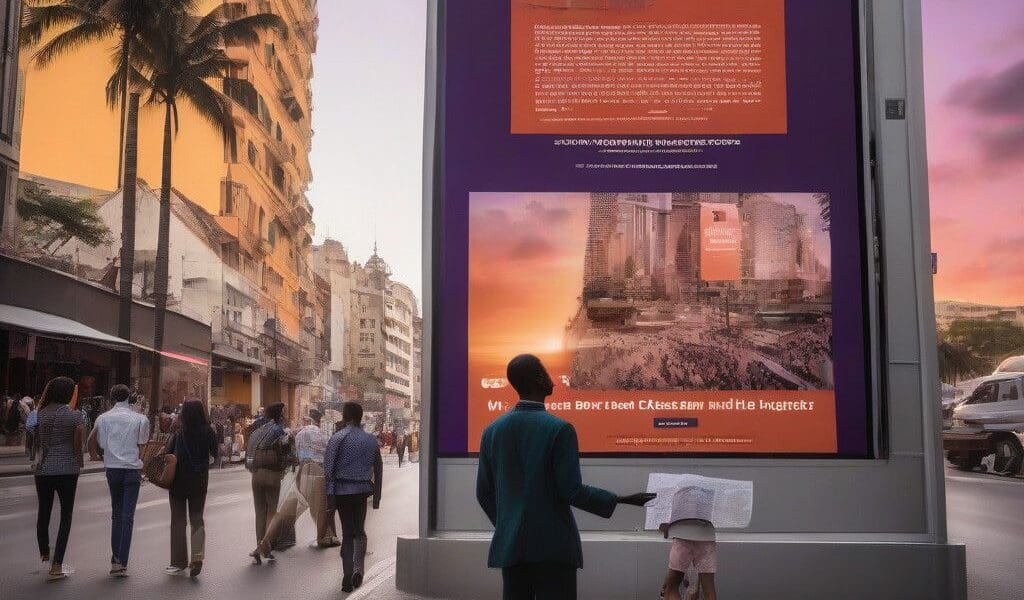Mozambique and Mauritius Block Social Media: A Threat to Digital Rights
In recent weeks, both Mozambique and Mauritius have come under fire for implementing social media shutdowns amid political crises. These decisions reflect a troubling trend in which governments seek to control the narrative during contentious times, often at the expense of citizens’ digital rights. In Mozambique, the government has blocked platforms such as Facebook and WhatsApp in response to protests after disputed election results. Meanwhile, Mauritius has imposed a temporary blackout on social media as it grapples with a wiretapping scandal that has clouded its political environment.
The actions taken in Mozambique are not isolated incidents. Following the elections, widespread protests erupted as citizens questioned the legitimacy of the electoral process. In a bid to curb dissent and stifle the flow of information, the government resorted to blocking key social media platforms. This tactic has been criticized globally as a violation of the right to free expression and access to information.
Similarly, Mauritius has witnessed political turmoil, spurred by allegations surrounding high-profile figures in a wiretapping scandal. With a critical election approaching, the government opted for a social media blackout, raising alarms about the potential for abuse of power. Critics argue that the shutdown not only limits citizens’ right to communicate freely but also obstructs the media’s critical role in holding power to account.
Various digital rights organizations, including Access Now and the #KeepItOn coalition, have condemned these actions. They argue that the shutdowns contravene established international human rights standards, namely the African Commission on Human and Peoples’ Rights (ACHPR) resolution 580 and the International Covenant on Civil and Political Rights (ICCPR). Both documents highlight the importance of upholding free expression and civic engagement even in times of political unrest.
Advocates for digital rights are urging telecommunications companies like Emtel and Mauritius Telecom to resist government orders for shutdowns. They argue that maintaining internet connectivity is vital for preserving access to information during politically sensitive times. By standing firm against governmental pressures, these companies could play a crucial role in safeguarding democratic principles and the rights of citizens.
The argument for resistance from telecommunications providers rests on the belief that they are not merely conduits for information but also partners in upholding democratic standards. By prioritizing transparency and accountability, these companies can protect the public’s right to access diverse viewpoints and critical perspectives essential for informed citizenship.
The implications of these shutdowns extend beyond individual rights; they reflect a broader pattern of censorship and control that threatens democratic, open societies. The erosion of digital rights can lead to a shrinking space for civic discourse, critical analysis, and ultimately, accountability within governance structures. When access to platforms that facilitate discussion and organizing is curtailed, entire communities face the risks of disinformation and oppression.
Moreover, these social media shutdowns have practical repercussions for the economy. In a time when e-commerce and digital business models are linking economies more than ever before, blocking access can lead to significant losses for businesses reliant on digital platforms. Companies in both Mozambique and Mauritius could suffer declines in revenue, stunted growth, and increased operational costs.
Commentators point to global precedents that highlight the futility and counterproductivity of shutting down digital spaces. Historical instances where governments have enacted similar measures often resulted in heightened protests and increased scrutiny from the international community. Rather than resolving tensions, such tactics only inflame dissatisfaction and undermine trust in political institutions.
In conclusion, the decisions by Mozambique and Mauritius to impose social media shutdowns during politically volatile periods have raised significant concerns about the future of digital rights. They underline the necessity for vigilance and accountability in safeguarding freedom of expression. As citizens become increasingly reliant on digital channels for information and communication, the stakes will only continue to rise. Digital rights advocates will need to be persistent in their push for transparency, corporate responsibility, and the protection of civil liberties.








